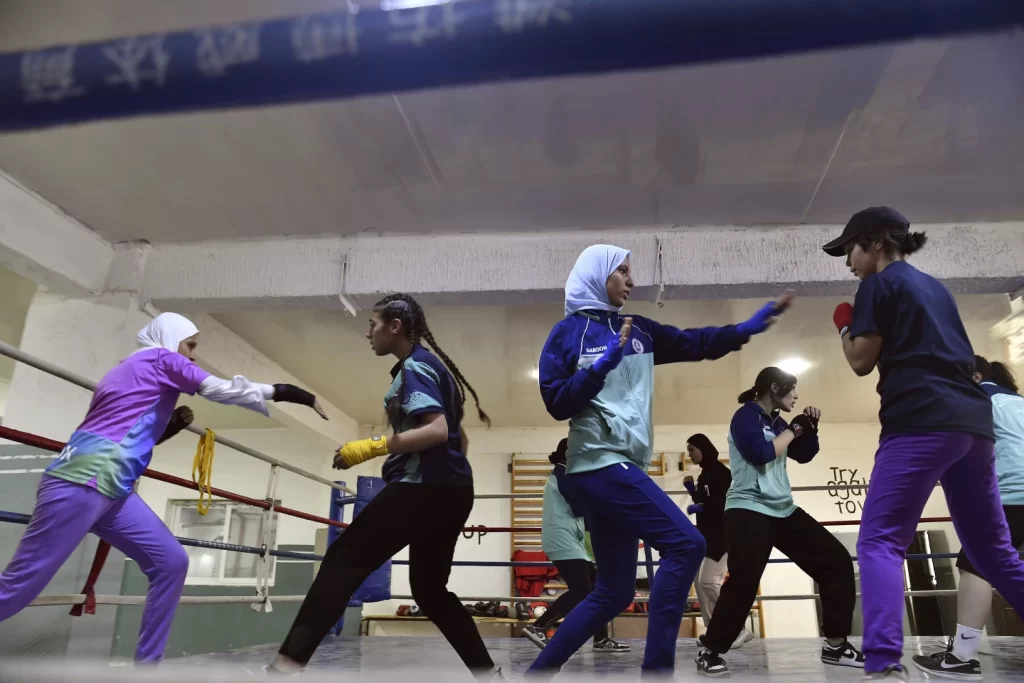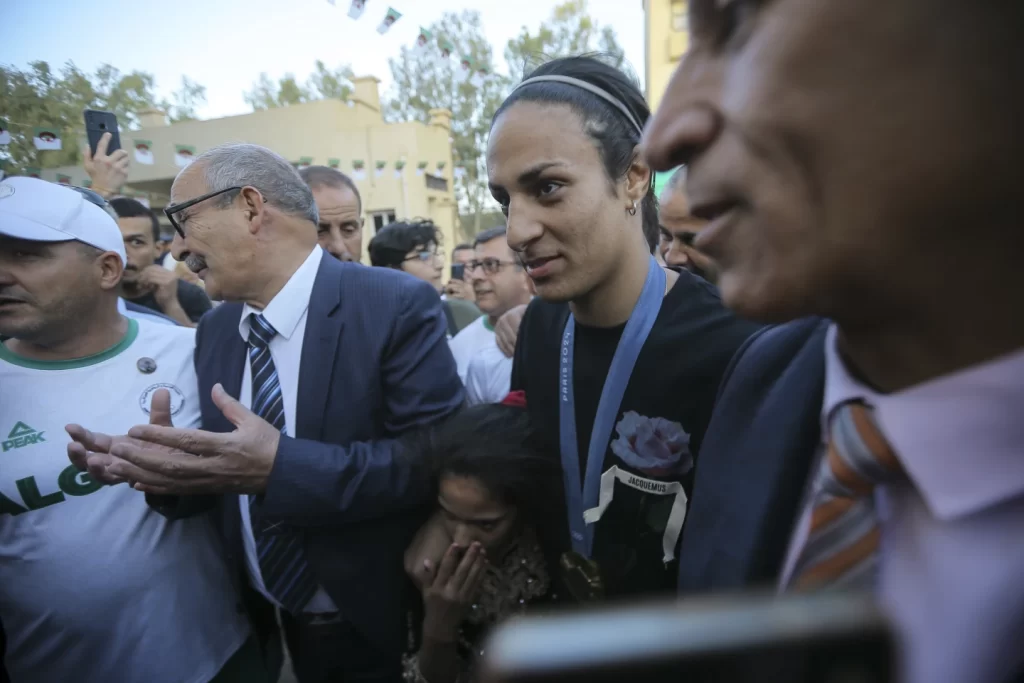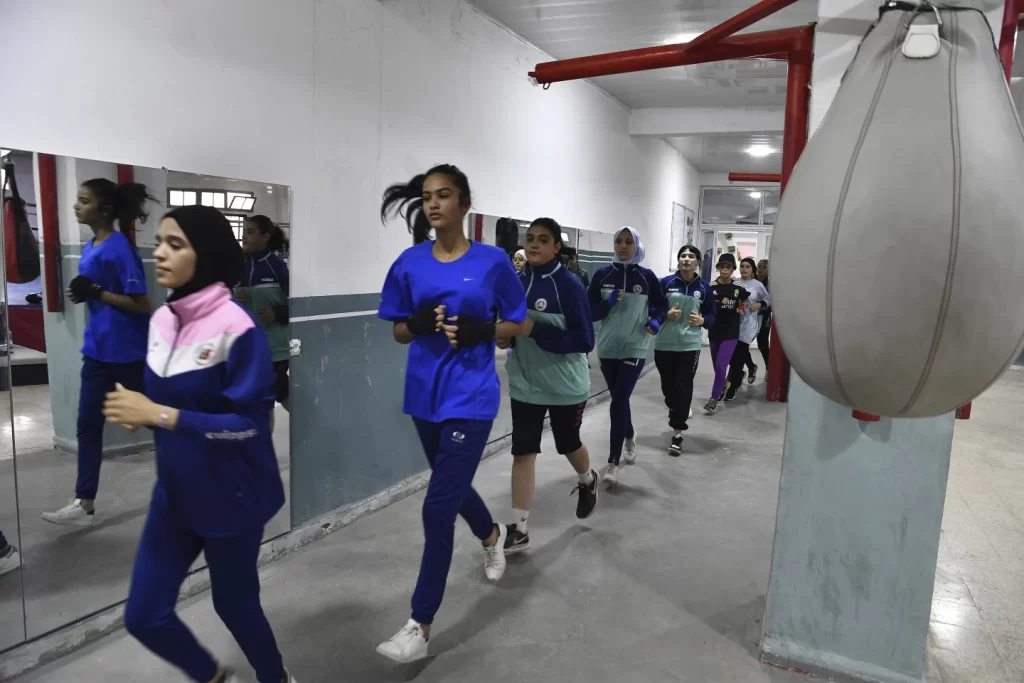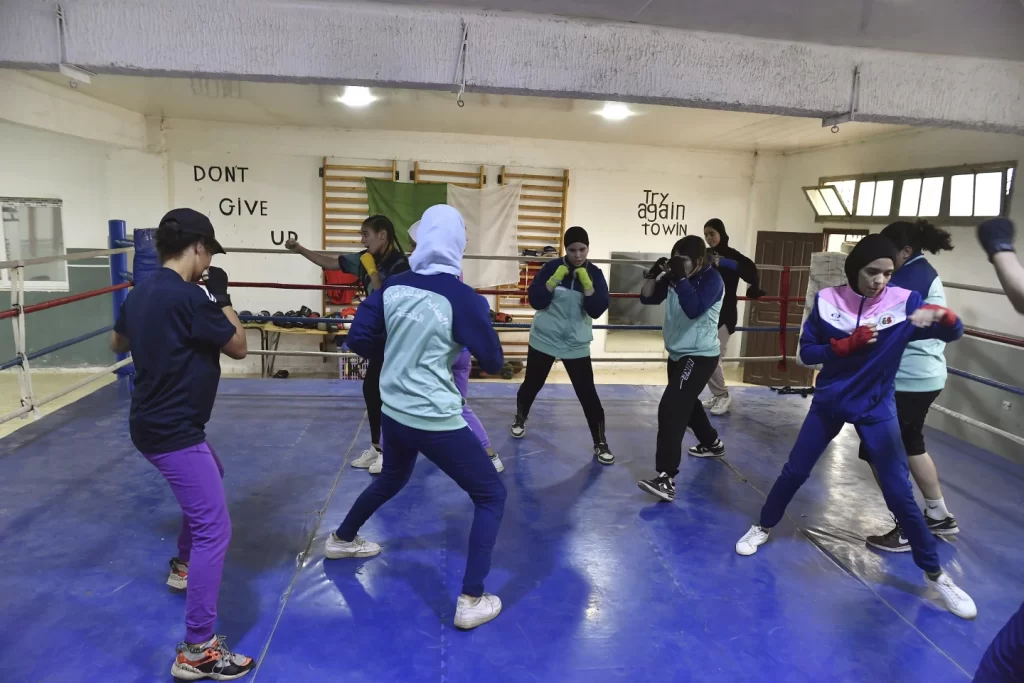Imane Khelif’s gold medal victory in women’s boxing at the Paris Olympics has ignited a wave of enthusiasm for the sport across Algeria, with coaches and athletes reporting a surge in interest, particularly among women.

Khelif, a 25-year-old welterweight, has become a national hero, her image adorning airports, highway billboards, and boxing gyms throughout the country. Her success has not only elevated her to celebrity status but has also inspired a new generation of female boxers.
In Ain Taya, a seaside town east of Algiers, the impact of what local media have dubbed “Khelifmania” is evident. Zougar Amina, a medical student and amateur boxer, describes Khelif as an idol and role model. “Since I’ve been boxing, my personality has changed: I’m more confident, less stressed,” Amina said, adding that the sport serves as “therapy to fight shyness, to learn to defend myself, to gain self-confidence.”

The local gym, a converted church, has seen a significant increase in interest. Coach Malika Abassi reports that all 23 young women and girls training there aspire to emulate Khelif’s success. “We’re getting calls from parents wanting to sign up their daughters,” Abassi said, expressing concern about the gym’s capacity to handle the growing demand.
Noureddine Bouteldja, a former amateur boxer and sports journalist, describes Khelif’s impact as transcending boxing to become a “social phenomenon” throughout Algeria. Her personal story and the international scrutiny she faced during the Olympics have resonated deeply with Algerians.
The nation rallied behind Khelif in the face of criticism from international figures who falsely claimed she was transgender. Algerians largely interpreted these attacks as affronts to their nation, with most unable to conceive of a transgender athlete from Algeria.

“It’s the victory of a woman who has shown extraordinary resilience and phenomenal strength of character in the face of the campaign to denigrate her gender,” Bouteldja said.
Mourad Meziane, head of the Algerian Boxing League, anticipates a significant increase in registrations among young women at the start of the school year in mid-September. Currently, Algeria has 30 regional boxing leagues and 10,000 athletes participating nationwide.
“The impact is inevitable and will only be very positive for women’s boxing in Algeria,” Meziane said.
The influence of Khelif’s victory extends beyond sports. Attorney Aouicha Bakhti, a prominent feminist and political activist, believes Khelif’s story will have a lasting impact on Algerian culture, serving as a counterweight to societal elements that discourage women’s participation in sports.

“This kind of epic helps society, ours in this case, which is in the process of retreating in the face of fundamentalist ideals,” Bakhti said.
Despite widespread support, Khelif’s success has faced some criticism. A few prominent imams and Islamist politicians have objected to the example she sets by wearing her boxing uniform rather than a headscarf. However, amateur boxer Amina Abassi believes the overwhelming support for Khelif will outweigh such criticism.
“I’m convinced that even conservative families will allow their daughters to take up boxing,” Abassi said. “Imane has broken through the wall of false modesty and hypocrisy.”
As Algeria celebrates Khelif’s victory, the nation watches with anticipation to see how her success will continue to shape attitudes towards women in sports and society at large.
AP



